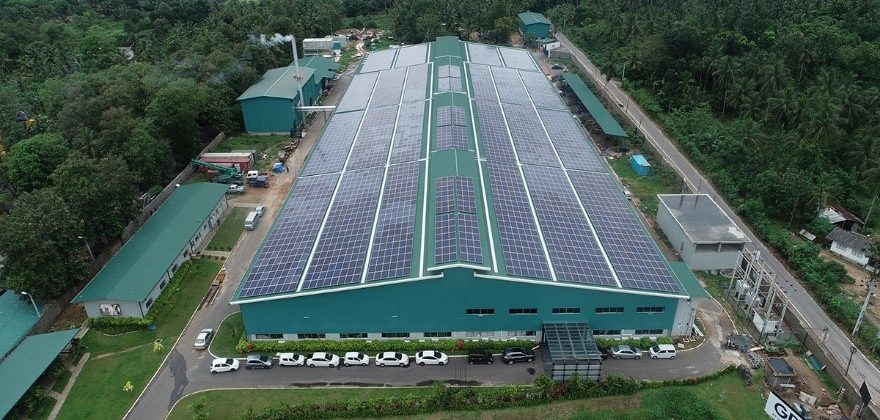According to Sri Lankan specialty tire manufacturer GRI, with global demand for natural rubber outpacing supply, all stakeholders in tire industries need to ensure that sustainability is a guiding ethos in its operations. With this in mind, the company says it has placed sustainability and environmental protection at the center of its operations.
Ananda Caldera, executive director of GRI, gave an example of its approach: “The use of a biomass boiler instead of traditional furnace oil boilers ensures that we do not create a hazardous environment around our factory. As our production is an environmentally friendly ‘dry’ process, there is no emission of gases or liquid disposal – this is a firm company mandate. There is also low material wastage in our production process.”
“One of our tenets of sustainability is that we take care of the water, soil and air around us,” added Shanaka Gunaratne, senior general manager of GRI. “This is the ethos that guides all aspects of our operations.” Shanaka explained that the GRI production plants also continuously fulfill all Central Environmental Authority (CEA) requirements.
The company has invested in new, energy-efficient machinery while ensuring noise and dust level standards are observed. The GRI production plant also possesses one of the largest rooftop solar systems in Sri Lanka, which has a capacity of 1,200kW and helps reduce carbon emissions by over 1,100 tons per annum. Furthermore, the company says its strict green policies on waste management have resulted in the implementation of rainwater harvesting and an efficient wastewater management system.
As explained by Dr Mahesha Ranasoma, CEO of GRI, the company tries to instill an environmentally conscious ethos in all of its employees. “Pragathi, GRI’s in-house academy established within its compound, regularly trains employees on new energy management and sustainability practices to ensure that sustainability is a dynamic process and employees recognize its importance. Environmentally sustainable growth is our strategic goal, both now and for generations to come.”



